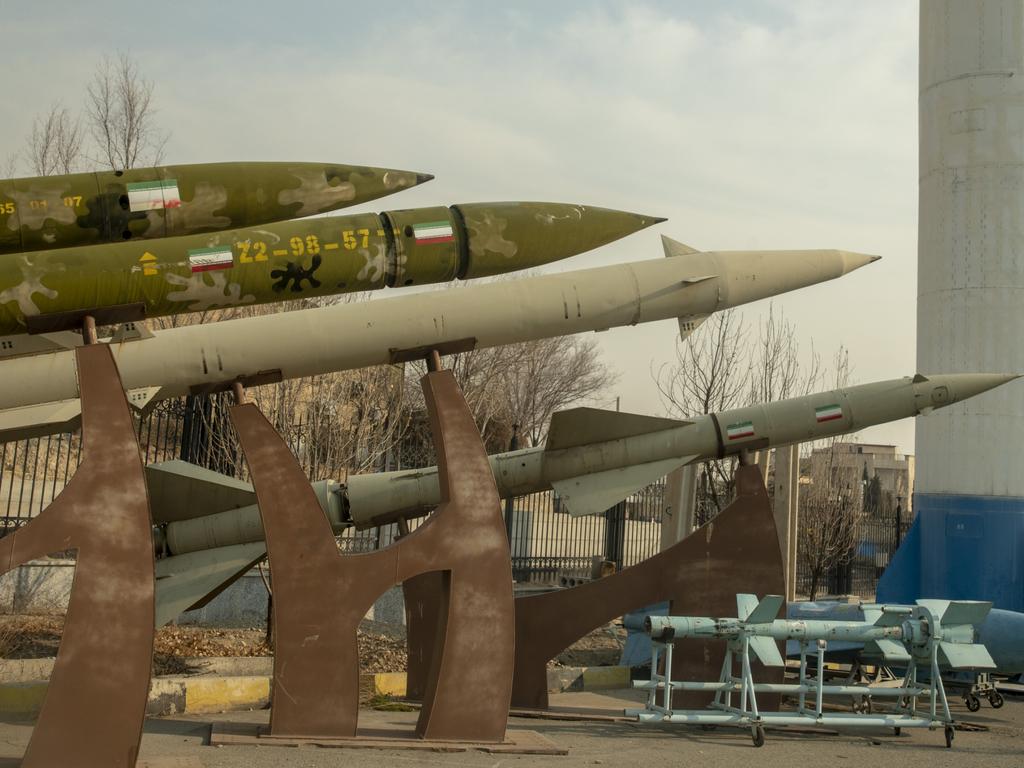Banning arms sales to Israel makes no sense

This is a capital error, what the Germans call a Hirngespinst, a chimera. The Gaza war is not interminable. But neither is it on the brink of resolution, a crisis just waiting for a turning point in the form of an international weapons embargo against Israel.
The war, six months in, is probably halfway through. The planned and loudly broadcast Israeli offensive on Rafah is inevitable since the calculation is that four Hamas brigades - the last of the original 24 - are stationed there, that the remaining core of the Hamas leadership lurks underneath the city and that smuggling routes from Egypt have to be blocked to prevent the re-arming of Hamas. Many of the October 7 hostages are also believed to be there. This, then, should be the decisive battle since it would allow the generals to announce that Hamas no longer had the military framework to pose a threat to Israeli citizens. Alongside the release of the hostages, this is the principal war aim. In order to reduce civilian casualties a corridor would be opened to Khan Yunis to house (among the ruins) those Gazans who fled for the apparent safety of Rafah.

The big uncertainty would be in the north and the possible activation of Hezbollah, Iran’s Lebanon-based military ally. That, too, might entail sustained fighting. The war may stutter on but the final curtain on this most political of conflicts will surely fall only when the US presidential election has been fought and won.
The open question at this point is how a British arms embargo could influence the course of the conflict or its final outcome. The answer: it makes no sense at all. Four former Supreme Court judges, joined by 600 members of the legal profession, have been arguing for a halt to arms sales because they claim that it could make Britain complicit in genocide. The former head of MI6, Sir Alex Younger, says that Britain’s arms sales could be used as leverage on Israel to make its war-fighting more compassionate. Civil servants are threatening a walkout unless sales are stopped. And the agitprop battalions, tired perhaps of Just Stopping Oil, have again been splattering red paint, this time around Labour Party offices, in support of the Gazan cause. Their message is simple: take away Israel’s military edge and the result will be peace.

Yet none of these protests engages with what Britain is actually selling to Israel. Sales amount to about pounds 42 million a year and comprise 0.9 per cent of Israeli weapons purchases. They don’t in themselves contribute to infringements of international humanitarian law. There is technology for military radars, for electronic warfare, for aircraft and helicopter components. Some of the kit is supplied first to the US for installation into fighter jets that are then delivered to Israel. Other equipment is dual use - that is, applicable to civilian as well as military machines.
The US is Israel’s chief supplier (almost 70 per cent), Germany comes second (almost 30 per cent). Both countries are rightly committed to defending the survival of the state of Israel. As is Britain, in the knowledge that several countries in the region have been committed to its destruction. Hamas chose the timing of its atrocities last year to derail a process of restoring diplomatic relations with its Arab neighbours. It was plainly helped along the way by Iran.

It is Hamas that initiated a war of human shields, not only by taking hostages but also by siting its launchpads in or close to places protected by humanitarian law. Human shields are forbidden by additional protocol 1 of the Geneva conventions and are therefore a war crime as well as a violation of humanitarian law. They are part of the Hamas trap set to ensnare Israel on October 7.
Now it is also trapping Israel’s natural western friends. The argument is that democratic Israel should be kept to higher standards than the terrorist group that is determined to destroy it. Following that train of thought, some countries such as Canada and Spain have suspended arms sales to Israel. But realpolitik suggests that apart from urging care for non-combatants, the West should also be supplying, rather than blocking, precision weapons to target those Hamas units hiding behind civilians.
Britain’s biggest arms customer is Saudi Arabia and remained so even at the height of its war with the Houthis of Yemen. If Israel is to be made the target of an embargo, then sales to Saudi Arabia would have to be limited too. Yet if there is to be a lasting peace in the Middle East after the Gaza war is over, Saudi Arabia will be needed to help anchor it.
The policy dilemmas are complex. It’s not only about how to help a friendly power beat away a challenge from a terrorist group backed by a ruthless near-nuclear power. It’s also about how to achieve a Middle East at peace with itself rather than being poisoned for generations. In that context, arms embargos against Israel look like a bit of cosmetic virtue-signalling. The best way to help the Palestinians is to banish Hamas from the political spectrum.
The Times






Israel’s critics see the country heading into the quagmire that America faced in the Vietnam War: a blundering, high-tech army outwitted by plucky freedom fighters, a prime minister who is starting to mimic Richard Nixon, and an isolated state trying to mask its weakness. In this telling - heard not only from restless US Democrats - the Gaza war is set to be never-ending. The conclusion: turn off the flow of arms and make Binyamin Netanyahu “see reason”.